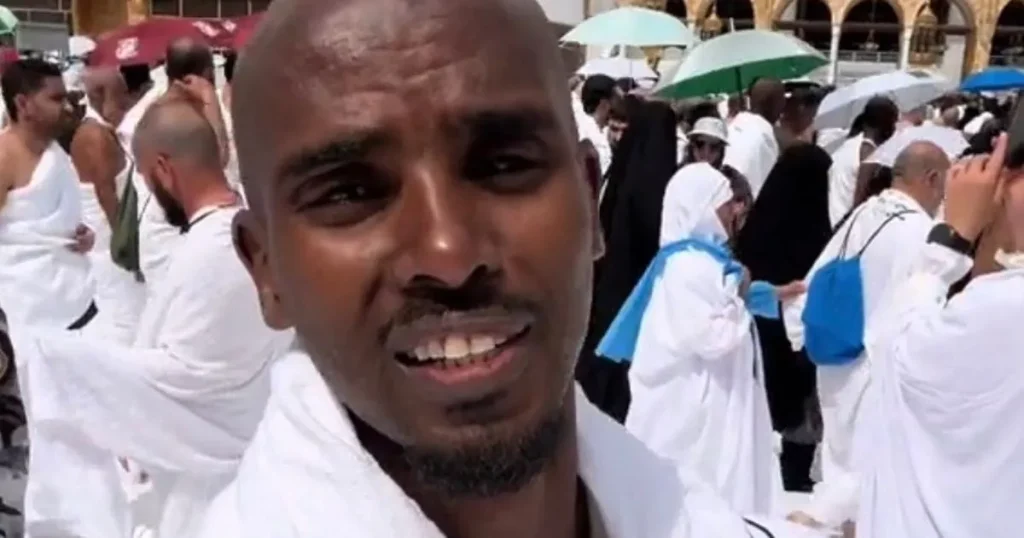Mo Farah shared his experience at the Hajj pilgrimage in Saudi Arabia, where around 1,300 pilgrims tragically died due to intense heat. The Hajj is one of the five pillars of Islam that Muslims must complete at least once in their lifetime. Mo Farah decided to undertake the pilgrimage this year, but it coincided with an intense heatwave, with temperatures soaring to 52C. Reports suggested that many of the deceased were unregistered worshippers who had limited access to shaded and cooler areas.Despite the tragedy, Mo Farah called the Hajj a “beautiful place” and shared his experience through social media, including a TikTok video from the religious festival.
The deaths at Hajj have raised concerns and prompted action from government officials. The Egyptian Prime Minister Mostafa Madbouly stripped a number of tourism companies of their licenses and referred their managers to prosecutors for enabling illegal pilgrimages. The costs involved have driven many to participate without a permit, leading to these tragic incidents. Other countries like Jordan and Tunisia have attributed some of the fatalities to the intense heat experienced during the pilgrimage. Indian pilgrim Khalid Bashir Bazaz described distressing scenes near the Grand Mosque, where people were collapsing due to high temperatures. Security was heightened at the facility, with officials announcing the names and nationalities of the deceased to allow relatives to identify their loved ones.
The ruling Al Saud family of Saudi Arabia, which holds significant influence in the Muslim world due to its oil wealth and stewardship of Islam’s sacred sites, is responsible for organizing the Hajj pilgrimage. The pilgrimage is a mandatory act of worship for Muslims who are physically and financially able to undertake it. Saudi Arabia said that approximately 1.8 million people participated in the Hajj this year, but the tragedy resulted in many not returning home. Despite the deaths, the Custodian of the Two Holy Mosques, King Salman, continues the legacy of overseeing the management of the Grand Mosque in Mecca and the Prophet’s Mosque in Medina, where Muslims gather to pray five times daily. The significant influence of the Al Saud family in the Muslim world underscores their responsibility for ensuring the safety and well-being of pilgrims during Hajj.
The deaths at Hajj highlight the importance of ensuring proper registration and adherence to guidelines during the pilgrimage. Unregistered worshippers faced challenges in accessing shaded and cooler areas, leading to tragic outcomes. The intense heatwave during this year’s Hajj further exacerbated the situation, with temperatures reaching dangerous levels. Concerns have been raised regarding the enforcement of regulations and the need for better oversight to prevent such incidents in the future. Governments have taken action against tourism companies that enable illegal pilgrimages, emphasizing the importance of proper permits and safeguards for participants.
Mo Farah’s decision to undertake the Hajj pilgrimage this year sheds light on the challenges faced by worshippers during this religious festival. Despite the tragic events, including the deaths of over a thousand pilgrims, Mo Farah described the Hajj as a “beautiful place” and shared his experience on social media. The tragedy at Hajj serves as a reminder of the risks associated with large-scale religious gatherings and the need for stringent safety measures to protect participants. As governments and religious authorities work to address the causes of these deaths and prevent future incidents, the sacred nature of the Hajj pilgrimage continues to draw millions of Muslims to Saudi Arabia each year in fulfillment of their spiritual obligations.


